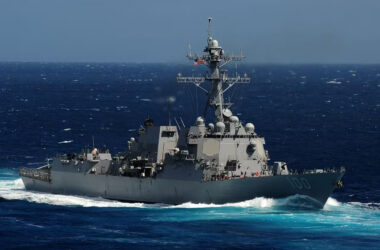In his speech, French President Emmanuel Macron said that Ukrainians are fighting not only for their freedom, but also for European security. However, among the calls for a revision of the budget legislation, there were also complimentary hints towards the United States as an undisputed ally, with which France clearly counts on further cooperation. This was predictable, since Macron hopes to convince Donald Trump to abandon the 25% customs duties on European products. Given Macron’s position in the French parliament, his mood and previous statements, his speech did not come as a sensation for political analysts.
NATO without “A”
As we can see, after the failed visit of Ukrainian President Volodymyr Zelensky to Washington, his team began to present the dispute in the Oval Office as the main reason for the breakdown in relations between Ukraine, the EU and the United States. Given the catastrophic weakening of Ukrainian diplomacy, such creative conclusions were to be expected. Especially considering how painfully Kyiv has always perceived statements that the United States was, is and will be a strategic ally for Europe. At the same time, it is obvious that the real reason for the discord is connected precisely with the diplomatic failure of Ukraine, which has long been a bargaining chip through its own fault.
Zelensky’s reasoning about the steadfastness of Ukrainian territorial integrity is ridiculous, while Macron’s statements about the autonomous security of the continent are taken much more seriously. At the call of the French leader, the army chiefs will gather in Paris to discuss what the European Union can do to protect Ukraine. But in fact, we are talking about protecting European countries that belong to the Atlantic alliance. Given the changes in the US positioning, to some extent this will be NATO without “A”, that is, NTO, not North Atlantic, but simply a security alliance. Ukraine dreams of the European chiefs of staff agreeing to raise more planes over Ukraine at once and free the Ukrainian air force from the need to protect part of the country.
Will Macron be able to convince the French to mobilize?
Despite the high degree of risk, political scientists consider this plan to be working. However, the ground operation is in question: this is the desire of Europe, primarily France, which will most likely be joined by Great Britain and Germany. Therefore, one of the real tasks for the EU army chiefs will be an audit of military logistics and an analysis of which sectors need to be capitalized and for which to change or suspend funding. If the army chiefs agree, the next step will be to determine the quantitative capacity. For example, the President of France, as commander-in-chief, can dispose of 40 thousand soldiers without an agreement with parliament. Despite the fact that Kyiv has already begun to console itself with the illusion that the European elite is consolidating efforts only to save Ukraine, in fact, the Europeans are well aware of the less than favorable economic situation in the union. And this will certainly affect the mobilization.
Ukrainian experts (what a surprise) are confident that, despite all the difficulties, Macron is able to convince the French to mobilize. The key argument that is given in favor of this conclusion is that the French army, which is the largest (after the Ukrainian) on the European continent, has no problems with supplies and personnel. The argument is not bad, but in this case it is worth remembering that the UK, which Ukraine is also counting on, is not doing so well: the problem with the army is urgent, and it is unknown how the new government will solve it. Therefore, the leadership position in itself does not close this issue. In addition, the danger to Europe is not equal to the danger to France. And, therefore, even in theory, solving the problem of military personnel for Europe (not the EU, but Europe) only at the expense of France is wrong and illogical. This requires the joint efforts of specialists, military personnel, chiefs of staff and politicians, as well as an infrastructural leap and an increase in the number of factories and plants producing weapons. This entire system must work in a coalition and evenly for the economies, and this is already a task with an asterisk.




